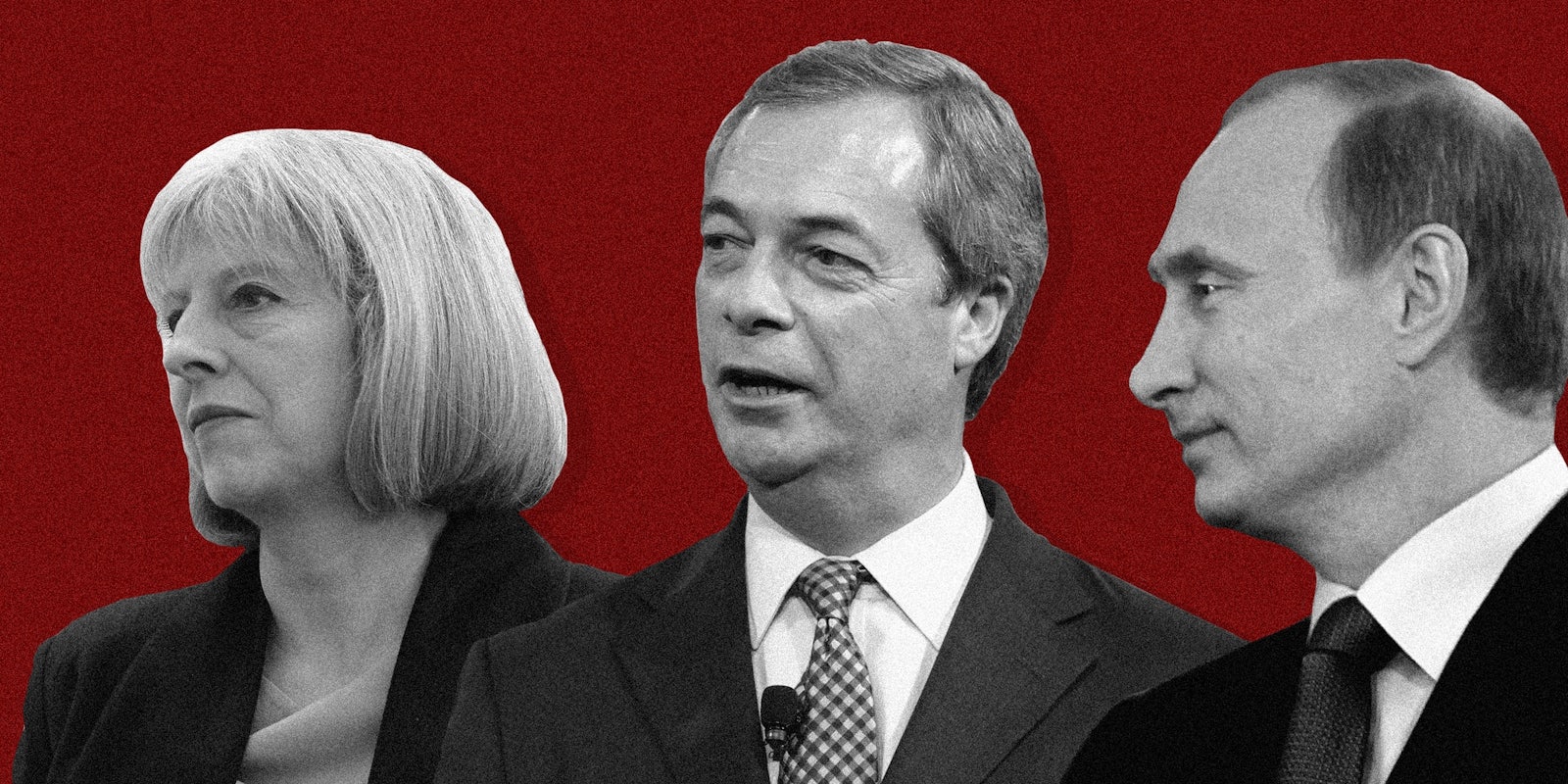Before Hillary Clinton could even privately concede, the world was reacting the idea of Donald Trump as president of the United States.
“After Brexit and this election, anything is now possible. A world is collapsing before our eyes. Vertigo,” tweeted a pessimistic French ambassador to the U.S., Gérard Araud.
The message was quickly deleted, but it reflected the emergent sense of uncertainty prevalent among Europe’s stunned political class, the establishment turned on its head once again.
Germany’s Norbert Roettgen, head of the German parliament’s foreign affairs committee, remarked: “We have no idea what this American president will do.”
Germans wake up to #ElectionNight results and Alptraum (nightmare) is trending on Twitter.
— Carlo Angerer (@carloangerer) November 9, 2016
As Europe’s leaders politely reflected on how ambivalent the situation was, the formal procedure of congratulating the new president began.
British Prime Minister Theresa May issued her statement, emphasizing the special relationship between the two nations and shared values of “freedom, democracy and enterprise”:
I would like to congratulate Donald Trump on being elected the next President of the United States. Full statement: https://t.co/7W2feuodUE
— Theresa May (@theresa_may) November 9, 2016
Ireland’s Taoiseach Enda Kenny forwarded his congratulations, after having branded Trump as “racist and dangerous” in the recent past.
Europe’s fringe, far-right groups, which continue to gain political influence on the continent, took courage in the announcement. Leader of the Dutch nationalist Party for Freedom Geert Wilders shared his enthusiastic support for what he called a “revolution”:
CONGRATULATIONS @realDonaldTrump !!
— Geert Wilders (@geertwilderspvv) November 9, 2016
Your victory is historic and for all of us!#ElectionDay #MakeAmericaGreatAgain pic.twitter.com/jZRJNYtP1M
During the night, as state ballot counts were being counted, he had declared “The [American] people are taking their country back, and so will we.”
Marine Le Pen, leader of France’s extreme right-wing National Front, tweeted “congratulations to the new president of the United States Donald Trump and the free American people!”
Félicitations au nouveau président des Etats-Unis Donald Trump et au peuple américain, libre ! MLP
— Marine Le Pen (@MLP_officiel) November 9, 2016
And, of course, Britain’s own controversial conservative demagogue and Brexit engineer Nigel Farage was overjoyed:
I hand over the mantle to @RealDonaldTrump! Many congratulations. You have fought a brave campaign. pic.twitter.com/txD3RFMQ2l
— Nigel Farage (@Nigel_Farage) November 9, 2016
Speaking from the eastern edge of Europe, Vladimir Putin exuberantly announced from the Kremlin the dawn of a new era of “restored fully fledged relations” between Russia and the U.S. Putin was one the the first to contact the president-elect.
Across the Middle East, the election was met with apathy, except in Israel where Education Minister Naftali Bennett contentiously declared “the era of a Palestinian state is over.” Prime Minister Benjamin Netanyahu, in his approval of the result, called Trump “a true friend of the state of Israel.”
Cuban fears that progress in relations achieved during the last two years of Obama’s presidency stand to be undone. The island nation announced five days of military actions soon after Trump’s victory was confirmed. Bastion Strategic Exercises, as they are known, usually happen at moments of high political tension—perhaps revealing the extent of Cuba’s apprehension.
In Asia, while China’s President Xi extended his hopes that the election result would lead to great economic prosperity for both nations, the Chinese Communist Party’s own newspaper, People’s Daily, described Trump’s victory as a signal of America’s “ill democracy.”
Whether the result is a truly sign of a democracy in crisis or not, the unfolding reaction of the world is a reminder of just how geopolitically relevant the office of U.S president is.
The world waits, attentively, to do business with President Trump’s America.


